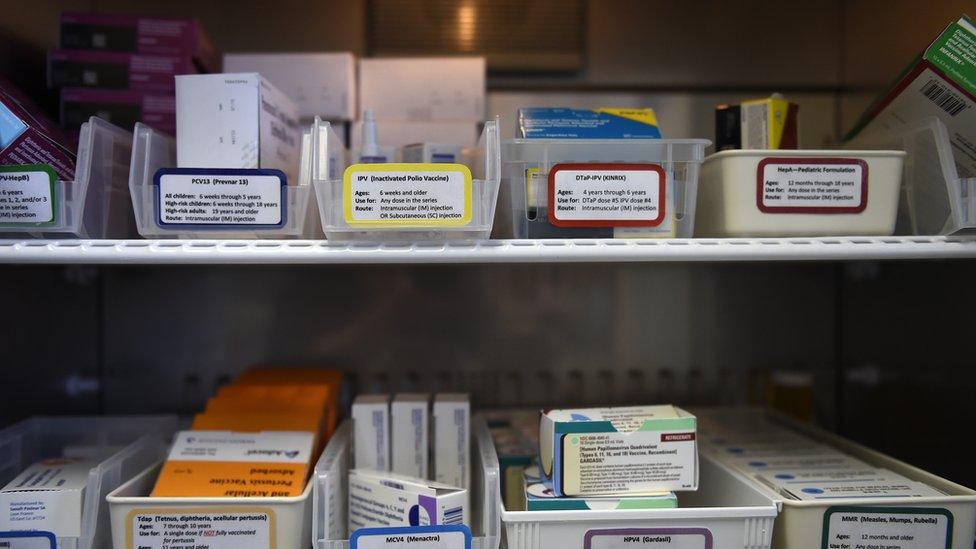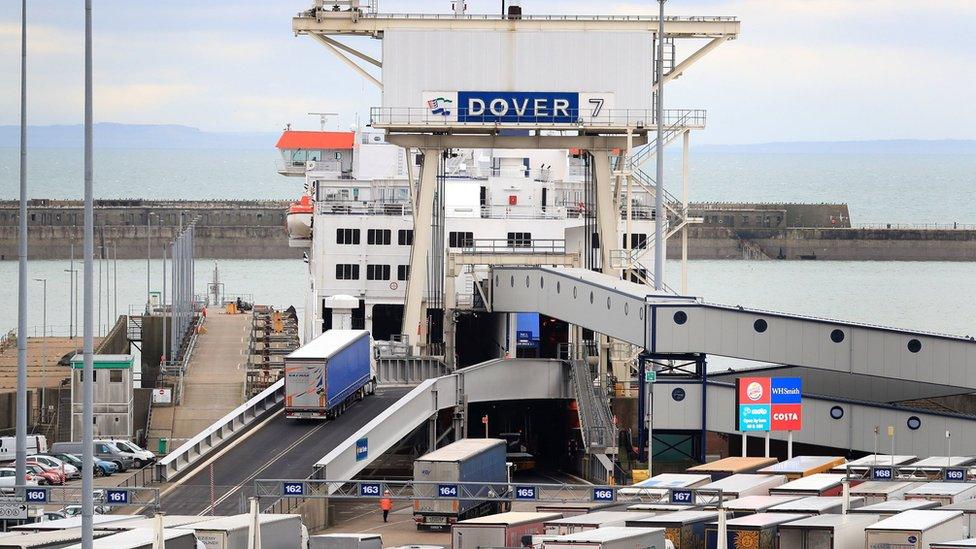UK delays no-deal medicine transport contract
- Published
- comments

A deadline to agree a contract ensuring the swift delivery of medical supplies in the event of a no-deal Brexit has been pushed back by seven weeks.
If the UK leaves the EU without an agreement, delays at ports could affect deliveries of products such as blood, medicines and transplant organs.
The Department of Health and Social Care (DHSC) originally set a deadline of 1 September for arranging an express freight service.
It has now been put back to 24 October.
The original tender document, external, which laid out the government's plan, said the service would need to be be "fully operational by 1.9.2019."
However, the DHSC said the document should have said the service must be operational by 1 November.
A DHSC spokeswoman said the new October deadline represents a move by the department to bring the implementation date forward by a week.
The BBC reported that there were concerns over the September deadline 19 days ago.
'Tight time frame'
Experts had raised concerns that the September deadline did not leave much time to arrange contracts for the service, which is designed to guarantee that supplies continue to reach medical centres and patients.
The later deadline allows more time for the procurement process, but means a contract is likely to be in place only a week before the government's agreed date for leaving the EU of 31 October, leaving limited time in case of problems over contracts or overruns.
The process could be subject to delays, said Andrew Dean, a former senior government adviser and procurement law expert at law firm Clifford Chance.
"Disgruntled bidders, internal approvals or just bad luck could block DHSC from entering into the contracts for weeks if not months," he said.
Shelf lives
The government came in for criticism for running up a bill of £80m trying to arrange ferry contracts in preparation for the 23 March Brexit deadline. One firm, Seaborne Freight, was awarded a £13.8m deal although it had never run a ferry service, the BBC revealed.
Government departments are keen to run thorough bidding and testing processes for any new contracts.
"It's good to see DHSC continuing to follow due process for this procurement, but with the services now due to be operational only a week before the Brexit deadline it's undeniably a tight time frame," said Gus Tugendhat, founder of Tussell, a data provider on UK government contracts.
Doctors have voiced fears over product shortages in the event of a no-deal Brexit. With no agreement in place, long queues are expected at major ports, which could pose problems for products with short shelf lives.
Together with stockpiling and helping companies with paperwork at the border, the DHSC hopes an express freight service will ensure patients receive the medicines they need, especially rare ones with short shelf-lives, which may require specialist transport conditions such as refrigeration.
- Published7 July 2019

- Published29 June 2019

- Published1 March 2019
